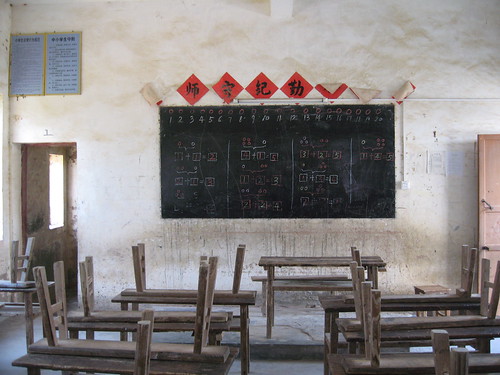This Project was thoroughly vetted by Give2Asia, a well-respected non-profit organization that supports public interest work in Asia, and is fully supported by the school's teachers and administration.
If you'd like to donate, you can click on the Donate button above or visit lancunproject.org. You can also mail a check to the address below.

WHY LAN CUN?My dad was born in Lan Cun. He told us a lot of stories about what it was like to grow up there in the middle of mountains of southern China. The region was so isolated that his father, my grandfather, was the only teacher in the region. He taught school for a month or two in one village before moving on to the next. It often took him weeks to hike over the mountains, wade through flooded fields, and wait for raging rivers to subside, before he returned home to see and teach his own children. The route was unspeakably difficult, and he died on one of those journeys home. Today, Lan Cun doesn't rely on traveling teachers, it has its own school, but even so, getting an education remains a difficult path. The families in this village are "extremely poor" by World Bank standards, surviving on less than a dollar a day. Our Project seeks to help give the kids of Lan Cun a better chance at an education and ultimately a better life.
WHAT YOUR DONATION PAYS FOR
A donation of $20 pays for one child to have a hot lunch in the cafeteria for three years. If we reach our goal of $15,000, we will impact more than 800 kids and teachers by 2014. After that, the facilities and hot lunch program can be maintained with just a fraction of this amount by the school itself.
You can read more about the Project, including how we worked with the school for a year to develop this idea, our budget plan, how 100 percent of your donation will go to the kids, how we will oversee the results, and our sponsorship by Give2Asia, at lancunproject.org.
HOW TO DONATE
You can donate online at lancunproject.org, or you can also mail a check (please write Lan Cun Education Project on it) directly to this address:
Give2Asia
465 California Street, 9th Floor
San Francisco, CA 94104
Some suggested donation amounts:
- $20 pays for one student to have a hot lunch in the new cafeteria for three years.
- $160 covers the cost of lunch in the cafeteria for the students in each class who walk more than three hours a day through treacherous terrain to get between home and school.
- $320 covers the students in each class who miss the second half of the school day.
- $1000 covers the cost of an entire class, which thanks to you, can now spend less time getting to school and more time in it--learning.













